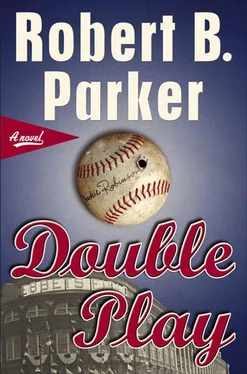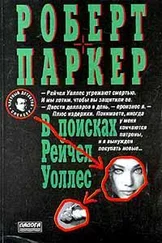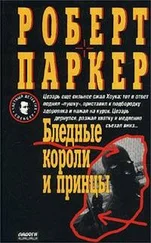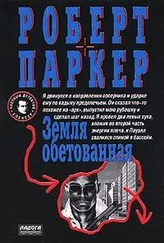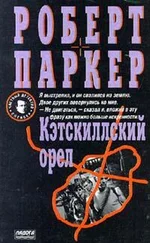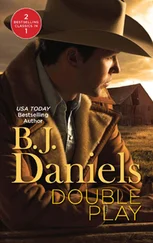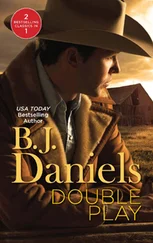The four men at Paglia’s table were on their feet. All of them had guns. Paglia remained seated. He looked mildly amused.
“Don’t shoot them in here,” he said. “Take them out.”
Burke’s .45 was still on his hip. A thin tall man with high shoulders said, “Outside,” and gestured with the .38 belly gun he carried. He held the weapon like it was precious.
“No,” Robinson said.
“How about you, pal?” the gunman said to Burke.
Burke shook his head. The gunman looked at Paglia.
Paglia said, “Okay, shoot them here. Make sure the niggers clean up afterwards.”
The gunman smiled. Burke could see that he liked the work.
“Which one of you wants it first?” he said.
At the next table a small Negro with a thin mustache, wearing a cerulean blue suit, said, “No.”
The gunman glanced at him.
“You too, boy?” he said.
At the table on the other side of them a large woman in a too-tight yellow dress said, “No.” And stood up.
The gunman glanced at her. The small Negro with the mustache stood too. Then everyone at his table stood. The woman in the too-tight dress moved in front of Robinson and Burke. The people from her table joined her. The people from Mustache’s table joined them. Then everyone in the room was on their feet, making an implacable black wall between Robinson and the gunman. Burke took his gun out. Robinson stood motionless, balanced on the balls of his feet. From the bar along the far side of the room came the sound of someone working the action of a pump shotgun. It was a sound, Burke thought, like the sound of a tank, that didn’t sound like anything else. The round-faced bartender leaned his elbows on the bar aiming a shotgun with most of the stock cut off.
The gunman looked at Paglia again. They were an island of pallid faces in a sea of dark faces. Paglia got to his feet for the first time. His face was no longer amused. He looked at Burke through the crowd, and at Robinson, and seemed to study them for a moment.
“His name I know,” Paglia said, jerking his head toward Robinson. Then he stared hard at Burke as if committing him to memory. “What’s your name?”
“Burke.”
Paglia nodded thoughtfully. Looking at Burke through the crowd of black faces, his eyes seemed to refocus, as if recalling something.
“Burke,” he said.
The room was quiet.
“Burke.”
He nodded again and kept nodding. Then he jerked a thumb toward the big man, who had managed to sit up on the floor among the forest of Negro feet. Two of the other men with Paglia eased through the crowd and got the big man on his feet. They looked at Paglia. Paglia looked at Burke again, then turned without speaking and walked out. The gunman put his belly gun away, sadly, and turned and followed Paglia. The other men, two of them helping the big guy, went out after him.
The room remained still and motionless. Then Robinson said again, “Not up here,” and everyone in the room heard him and everyone in the room began to cheer.
“Lucky thing this is a baseball crowd,” Burke said to Robinson.
Robinson looked at Burke for a moment as if he were somewhere else. Then he seemed slowly to come back. He smiled.
“Yeah,” he said. “You scared?”
“No.”
“Why not?”
Burke shrugged.
“No,” Robinson said. “I want to know. You could have run off. You didn’t. Aren’t you scared of getting killed?”
“Don’t much care,” Burke said.
“About dying?”
“About anything,” Burke said.
“You are not here to take his side,” Mr. Rickey said. “If someone throws a rotten egg at him you let it go. If someone calls him a vile jigaboo you pay no attention. If Robinson comes into the stands after the miscreant who threw the egg, you stop him. If someone tries to shoot Robinson, you stop him. Do you understand?”
“I do.”
Burke was behind the visitors’ dugout at Wrigley Field, looking around the stands. The game was peripheral, but he knew that Robinson was two for two off a struggling Claude Passeau, and the Dodgers had a six-run lead in the fifth inning. Most of the cheap seats were filled with black faces. The box seats, where Burke was, were half empty. A tall thin guy with high shoulders sat down in the seat beside Burke.
“How ya doing,” he said.
He had a bag of peanuts.
“Fine,” Burke said.
“Remember me,” he said. “The shine joint up on Lenox Ave.”
“I do,” Burke said.
“I got a message,” he said.
Burke didn’t say anything. The thin high-shouldered man took a peanut from his bag, and shelled it. Both men were staring at the field. But Burke’s full concentration was on the thin man.
There was movement on the field. Somebody had hit the ball. Somebody had caught it.
“For me,” Burke said.
“For you and young Rastus.” The thin guy nodded toward the field.
Burke didn’t say anything. The inning must have ended. Teams were coming in and going out. The thin man ate another peanut.
“Mr. Paglia says that you and the nigger going to die this season.”
“Why tell me about it,” Burke said. “I’ll know when it happens.”
The thin guy grinned.
“Don’t rattle too easy, do you.”
“I don’t,” Burke said.
“Me either. Mr. Paglia’s insulted. So he wants you to know ahead of time. He wants you to know it was him when it happens. He wants you to sweat about it for a while.”
“Who’s going to do the shooting?”
“Probably be me,” the thin guy said.
Burke nodded. Beer was being passed. Peanuts were tossed. The base paths were reddish. The grass was bright green. Behind the left field fence, across the street, people were watching the game from the roof of a building.
“I’ll keep it in mind,” Burke said.
The thin man ate his peanuts. He was careful about it. Open the shell, take out the nuts inside, throw away the shells, pop the nuts into his mouth, chew slowly, his eyes on the field.
“Still got that big forty-five?” he said after a while.
“Yep.”
He ate three more peanuts. They smelled good.
“Kind of clumsy to pull,” he said.
“Knock you on your ass, though.”
“True.”
He offered his bag of peanuts. Burke took a couple. The game on the field seemed silent and remote.
“Lemme ask you something,” the thin guy said.
Burke didn’t say anything.
“I seen you,” he said. “Up in Harlem. You can handle yourself. Fists. Gun. You know what you’re doing.”
Burke ate his peanuts.
“So how come,” the thin guy said, “you’re hanging around with this buck nigger like he was your cousin?”
“Can’t sing or dance,” Burke said.
“It’s work,” the thin man said.
Burke nodded.
“There’s a lot of work,” the thin man said.
“Like walking behind a fat thug who can’t do his own shooting?”
“He don’t have to no more,” the thin man said.
“You do it.”
The thin man grinned.
“Can’t sing or dance,” he said.
The ex cathedra voice of the PA announcer said that Stan Hack was batting for Claude Passeau. Hack.
“So how come?” the thin man said.
“It’s a good payday,” Burke said.
“You a nigger lover?”
“I don’t love much of anything,” Burke said.
The thin man nodded as if he knew about that.
“You willing to die for this coon?” he said.
“Been willing to die for a lot less,” Burke said.
The thin guy was quiet for a while. Then he shrugged.
“Well,” he said. “You signed on for it.”
Hack popped the ball high and foul to the left side. They watched Spider Jorgenson catch it in the third-base coaches’ box and the inning was over. When Burke looked back, the thin man was gone.
Читать дальше
